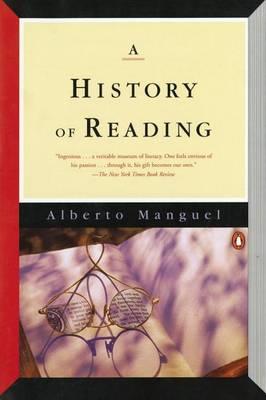Photographs by Kevin Rabalais
Last week, we spent a morning in good book conversation with Alberto Manguel, novelist, essayist, anthologist, translator and all around gentleman of letters. The quintessential writer on the act (and the joy) of reading, Manguel penned its essential history, aptly titled A History of Reading. His other numerous and enthralling books on literature include The Library at Night, A Reader on Reading and, most recently, Curiosity. He is also the author of the novels News From a Foreign Country Came, Stevenson Under the Palm Trees and All Men are Liars. As a young man, Manguel read to Jorge Luis Borges, one of the greatest writers never to receive the Nobel Prize for Literature and, for a period, director of the National Library of the Argentine Republic, a position Manguel now holds. “Every reader is an anthologist, but few carry the mania for selecting to the extreme of compiling a book,” Manguel writes in “Sweet Are the Uses of Anthology”:
“Memory keeps records for us, chooses this story and drops that one, builds odd manticores out of authors who happen to have met at our bedside. As readers, we change what writers write, cut it to fit our daily quotas, give it the tone of that particular moment in which something was read, mirror it in other texts of similar plot or style—in a word, make the writing ours. And because reading is a lonely vice, we frequently bring others into our reading; we nudge them to listen, to share our delight or disgust, to judge our selection. Every reader is an anthologist who breeds readers. When I was 10 or 11, and living in Buenos Aires, my eldest aunt, who late in life had adopted strict Edwardian manners, gave me her commonplace book. It was a scrapbook with fake white marble covers, and on the gray pages my aunt had copied out favorite passages from a long life of reading—mainly Spanish romantic poets and French novelists now mercifully forgotten, such as José de Espronceda and Anatole France. She had inscribed the names of the authors in her voluted handwriting, but to me the only author of this collection was my aunt.”
After our conversation, we accompanied Manguel to the State Library of Victoria for a tour. This installment of Sacred Trespasses includes photographs from our visit to the library and also some of our favorite passages from Manguel’s work.
Consider it part of our ever-growing and evolving commonplace book of Alberto Manguel’s provoking and comforting prose.
“Since I first started reading, I know that I think in quotations and that I write with what others have written, and that I can have no other ambition than to reshuffle and rearrange. ”
“That is the survivor’s duty: to tell, to recreate, to invent—why not?—other people’s stories. Take any number of events in the life of a man, distribute them as you see fit, and you will be left with a character who is unarguably real.”
“I explore my library like someone returning to his native land after an absence of decades.”
“We all know that the events we experience, in their fullest, deepest sense, escape the boundaries of language. That no account of even the smallest occurrence in our life can truly do justice to what has taken place, and that no memory, however intense, can be identical to the thing remembered. We try to relate what happened but our words always fall short, and we learn, after many failures, that the closest approximation to a truthful version of reality can be found only in the stories we make up. … Our best way of telling the truth is to lie.”
“Stories are our memory, libraries are the storerooms of that memory, and reading is the craft by means of which we can recreate that memory by reciting it and glossing it, by translating it back into our own experience, by allowing ourselves to build upon that which previous generations have seen fit to preserve. ”
“Maybe this is why we read, and why in moments of darkness we return to books: to find words for what we already know.
”
“But reading is not achieved merely by having a text made available: it demands that its readers enter the maze of words, cut open their own tracks, and draw their own charts beyond the margins of the page. ”
“Ideal readers do not reconstruct a story: they re-recreate it.
Ideal readers do not follow a story: they partake of it.
...
The ideal reader is both generous and greedy.
...
The ideal reader shares the ethics of Don Quixote, the longing of Madame Bovary, the lust of the Wife of Bath, the adventurous spirit of Ulysses, the mettle of Holden Caulfield, at least for the space of the story.
...
The ideal reader wishes both to get to the end of the book and to know that the book will never end.”
















